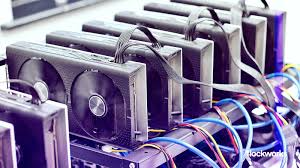Cryptocurrency mining has become a serious business over the last few years. While Bitcoin was once mined on personal computers, the increasing network difficulty has made specialized hardware a necessity. If you’re looking to get started, finding the right bitcoin miner for sale is a crucial first step.
The market offers a variety of miners, from entry-level machines to industrial-grade rigs, and choosing the right one can make the difference between profitability and loss. This guide walks you through everything you need to know before making a purchase.
Understanding Bitcoin Mining
Bitcoin mining involves verifying and adding transactions to the blockchain. Miners compete to solve complex mathematical puzzles, and the first to solve them earns new Bitcoin. This process requires immense computational power, which is why standard computers are no longer viable for serious mining.
A dedicated Bitcoin miner, often an ASIC (Application-Specific Integrated Circuit), is designed to perform these calculations efficiently. When searching for a bitcoin miner for sale, it’s important to understand the role of hash rate, power consumption, and durability.
Types of Bitcoin Miners
There are several options available depending on your goals and budget:
-
ASIC Miners:
ASIC miners are purpose-built for Bitcoin mining. They provide high hash rates and energy efficiency but are limited to Bitcoin. Popular models include the Antminer and WhatsMiner series. -
GPU Mining Rigs:
While primarily used for altcoins, GPU rigs can still mine Bitcoin indirectly through merged mining or by mining other coins to exchange for BTC. -
Used Miners:
Buying used hardware can lower upfront costs but comes with risks, including wear-and-tear and reduced warranty coverage. Always verify the seller’s credibility when looking for a bitcoin miner for sale.
Key Considerations Before Buying
Before purchasing a miner, consider the following factors:
-
Hash Rate: A higher hash rate increases the chance of earning rewards but also consumes more electricity.
-
Energy Efficiency: Check the wattage per terahash. Miners with better efficiency reduce ongoing costs.
-
Upfront Cost: ASIC miners can cost anywhere from a few hundred to several thousand dollars. Ensure your budget aligns with projected profitability.
-
Cooling Requirements: Mining generates heat. Ensure you have proper ventilation or cooling systems to avoid overheating.
-
Warranty and Support: Buying from reputable suppliers ensures you can get support if issues arise.
Where to Find a Bitcoin Miner for Sale
Several avenues exist for purchasing a miner:
-
Official Manufacturers: Buying directly from companies like Bitmain or MicroBT guarantees authenticity and warranty coverage.
-
Authorized Resellers: These suppliers often provide support and pre-assembled setups.
-
Secondary Markets: Platforms like eBay or specialized crypto forums offer used miners, but extra caution is required.
Research and compare prices, reviews, and delivery times to avoid scams. A poorly sourced miner can cost you more in repairs or lost profits than you save upfront.
Calculating Profitability
Even with the best hardware, mining profits depend on electricity costs, network difficulty, and Bitcoin’s market price. Use mining calculators to estimate returns based on your specific setup.
For example, a miner with a 100 TH/s hash rate at $0.10 per kWh may yield a different profit than the same miner in a region with $0.30 per kWh electricity. When buying a bitcoin miner for sale, factor these calculations into your decision.
Tips for New Miners
-
Start Small: If you’re new, begin with a single miner to test the waters before scaling.
-
Join a Mining Pool: Pooling resources with other miners provides more consistent payouts than solo mining.
-
Monitor Performance: Track temperature, hash rate, and uptime to maximize efficiency.
-
Stay Updated: Firmware and software updates can improve performance and energy efficiency.
Starting with a cautious approach helps minimize risks while gaining practical experience.
Common Mistakes to Avoid
-
Ignoring Electricity Costs: This is often the largest expense. Without factoring in energy consumption, profits can evaporate.
-
Buying Cheap Used Hardware: Older miners may seem like a bargain but can consume more power and break down faster.
-
Overestimating Returns: Bitcoin’s price is volatile. Don’t assume your mining rig will always generate high profits.
Being realistic about these factors ensures a more sustainable and profitable mining operation.
Future Trends in Bitcoin Mining
The Bitcoin mining industry is evolving rapidly. Energy-efficient ASICs are becoming more common, and some miners are moving toward renewable energy to cut costs. Cloud mining and hosting services are also gaining traction, allowing individuals to rent mining capacity without managing hardware directly.
For those looking to buy a bitcoin miner for sale, staying informed about these trends can help you select hardware that remains relevant and profitable over the long term.
Conclusion
Buying a bitcoin miner for sale is the first step toward participating in one of the most competitive and exciting areas of the cryptocurrency market. Choosing the right hardware, understanding costs, and planning for efficiency are essential to long-term success.
Whether you opt for a brand-new ASIC, a trusted used miner, or a small GPU rig, your setup will determine your potential returns. By carefully evaluating your options, joining mining pools, and monitoring your rig’s performance, you can make informed decisions and increase your chances of profitability in the dynamic world of Bitcoin mining.
Bitcoin mining is more than a hobby—it’s a serious investment in technology, energy, and strategy. And with the right miner, you can start building your position in the growing digital economy today.

